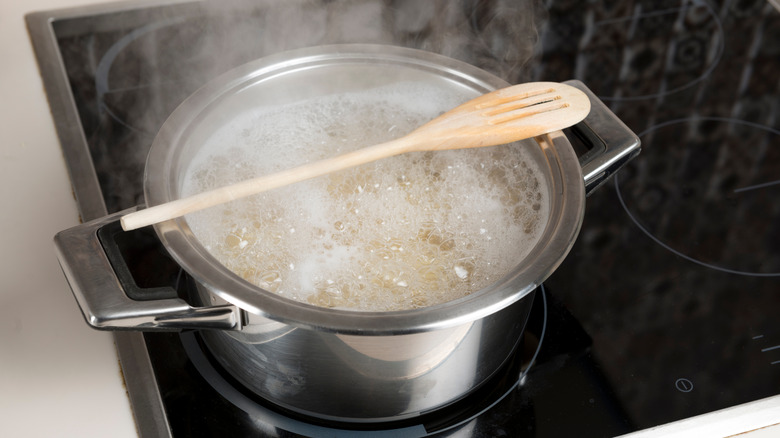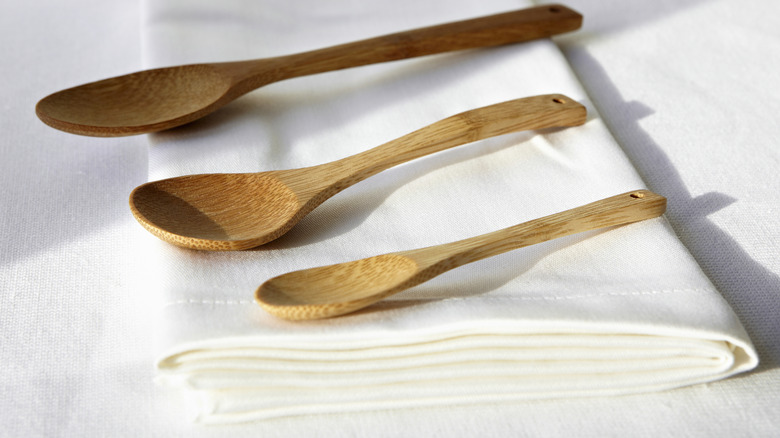TikTok Recommends Boiling Wooden Utensils To Clean Them, But Is It A Good Idea?
Many home chefs swear by the use of wooden utensils for their cooking. However, the sanitation of these tools is a question that often arises. With that in mind, it's no wonder that a TikTok hack — which says to boil wooden utensils at least once a month — went viral.
"Whether you're handwashing them or putting them in the dishwasher to get them clean, [wooden utensils] harbor liquid, bacteria, and oils," Nicole Jaques says in the TikTok video which shows her boiling her own wood tools. The results show cloudy water and floating particles after 20 minutes of boiling. Jaques also demonstrates the difference between a wooden spatula put through the dishwasher and one boiled, with the boiled one having no stains and looking much cleaner.
These results are intriguing. However, boiling wooden utensils might not actually be good for them in the long run. To be clear, Jaques is correct in that they can harbor liquid and bacteria: because wood is naturally porous, it can soak up the liquid it comes into contact with, including any common kitchen liquids like pasta water, sauces, and even juices from meats. This, in turn, can cause bacteria to grow (and even odors to linger) in the wood.
Unfortunately, boiling isn't necessarily the answer to a clean, long-lasting wooden spoon, assuming you want to keep it for years to come. Prolonged exposure to water makes wood soft and even causes cracks as it dries, so boiling your utensils too often may degrade their integrity.
Properly caring for wooden utensils
Another issue with boiling your wooden kitchen utensils is that it removes the natural oils in the wood, which can also lead to damage. As explained by a different TikTok from Lisa of America's Test Kitchen, "If you boil it, you're going to remove its natural oils; it will absorb water, and as it dries, it shrinks and cracks. And this will dramatically shorten the lifespan of your tools." So, by boiling wooden tools, you'll end up having to throw them out and purchase new ones more often. This lines up with the opinion of Brad Bernhart of Early Wood Designs, who told All Recipes that, "I would not recommend doing it once a month unless you are ok with shortening the life of your utensils. I think I could sign up for doing this once or twice a year." Not exactly a monthly ritual, then.
The proper way to care for wooden utensils is handwashing. Using hot water and a mild soap, give the wooden spoon a scrub. You can use a sponge to remove stuck food residue. Once the spoon is thoroughly cleaned, dry it with a kitchen towel and put it away.
While some may argue that this method only cleans the surface, you don't necessarily have to worry about bacteria deep within wood utensils. Once bacteria is deep in the wood, it won't resurface and will eventually die. You may rest assured that wood tools, like spoons, spatulas, and even lifeless old cutting boards, are sufficiently clean with good, old-fashioned handwashing. You can also use a mineral oil, which will help condition the wood, keep it from splintering, and make it less porous.

